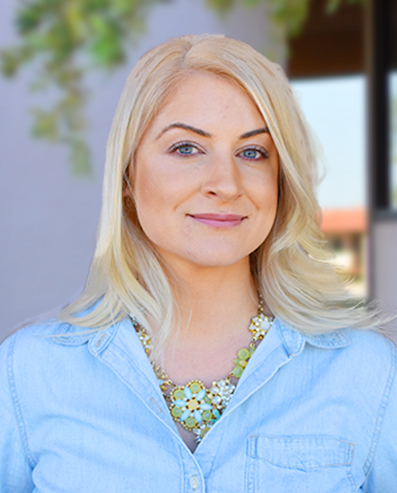
 TRY A DIFFERENT APPROACH
TRY A DIFFERENT APPROACH
Libby Johnson, Manager of Learning and Development
According to psychologist Tasha Eurich, the world is divided into two groups of people: those that think they are self-aware, and those that are self-aware. No one sees themselves as self-unaware; we all have some ability to think about our behavior and how it shapes our experiences. However, thinking about ourselves is not the same as knowing ourselves, and the proof is in the outcome.
Consider the difference between a perfectly lit, posed selfie and a candid photo snapped while we’re mid-sentence with a French fry dangling out of our mouth. One is a carefully-crafted narrative about who we are (our best angles and a sprinkle of ego). The second is also us – slack-jawed, face contorted, unprepared, and maybe even a little unattractive. The selfie represents the act of thinking about ourselves. The candid represents the hard work of knowing ourselves. To become self-aware, we must lock eyes with that terrible candid version of ourselves and not look away. We must be willing to see ourselves, plainly, as others see us. That’s only the first step.
Self-awareness starts with how well we know ourselves, and it continues with how we employ knowledge of ourselves. Employing that knowledge usefully comes down to the type of question we ask ourselves in the pursuit of selfawareness, and it’s important that question is WHAT, not WHY.
Imagine I am going out for a promotion. There is a lot to gain from this promotion and I want it badly. I interview for the position, it goes fairly well, but I am not selected. Let’s take a look at the internal dialogue that follows the WHY of this situation.
Why wasn’t I selected for the promotion? Maybe I didn’t perform as well as I could’ve in the interview. My voice did get shaky a few times.
Why do I always choke up when the pressure is high? Maybe deep inside, I don’t even think I’m the best choice for this position.
Why don’t people see me as someone who is ready for more responsibility? I work hard, I do my best- surely that should be enough.
Why am I always passed over in these situations? Maybe it’s because I’m not liked by my boss.
Why doesn’t my boss like me? She certainly seems to respond better to my more extroverted teammates. Maybe she prefers charisma to substance. I’m never putting myself out there again like that. I should’ve known the deck was stacked against me from the beginning.
Asking WHY leads us away from our self-awareness and toward creating narratives that serve our ego and insecurities. WHY is linked to matters of perception; not fact. In trying to understand why we were passed up for a promotion, we created a story about ourselves as a shaky performer who is ultimately the victim of our boss’s interpersonal bias. Under WHY thinking, we are a pile of human failings and others are to blame. WHY directs our thoughts to serve our brain’s need for answers.
There is one simple tool that will help you leverage your self-awareness to transform outcomes: WHAT. Don’t ask WHY; ask WHAT. This allows us to define that something isn’t working for us, and arrive at our self-awareness solution. Let’s take a look at how internal dialogue is changed by WHAT.
What caused me to not be selected for the promotion? I was nervous in the interview and may’ve come off as unsure of myself or my ideas.
What caused me to choke up when the pressure was high? I haven’t had a lot of experience presenting those ideas to that audience before; that was a new and unfamiliar situation to be in. Maybe being in unfamiliar situations makes me nervous.
What could I do to keep from feeling nervous next time? I could’ve practiced my presentation with a few of my teammates or some friends. Maybe they could give me feedback on how to be better. In fact, maybe I could just ask for feedback on my interview performance? Then, I could just zero in on those exact things for the next promotion opportunity.
When we focus on what, we leverage self-awareness to create opportunities, conversations, and goals. More importantly, dear reader, the pursuit of true self-awareness is only useful if it helps us up rather than holding us captive.
When you want a different outcome, first take a candid look at yourself and then try a different question.


